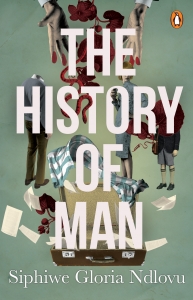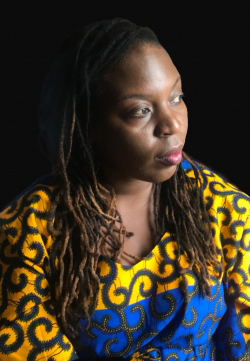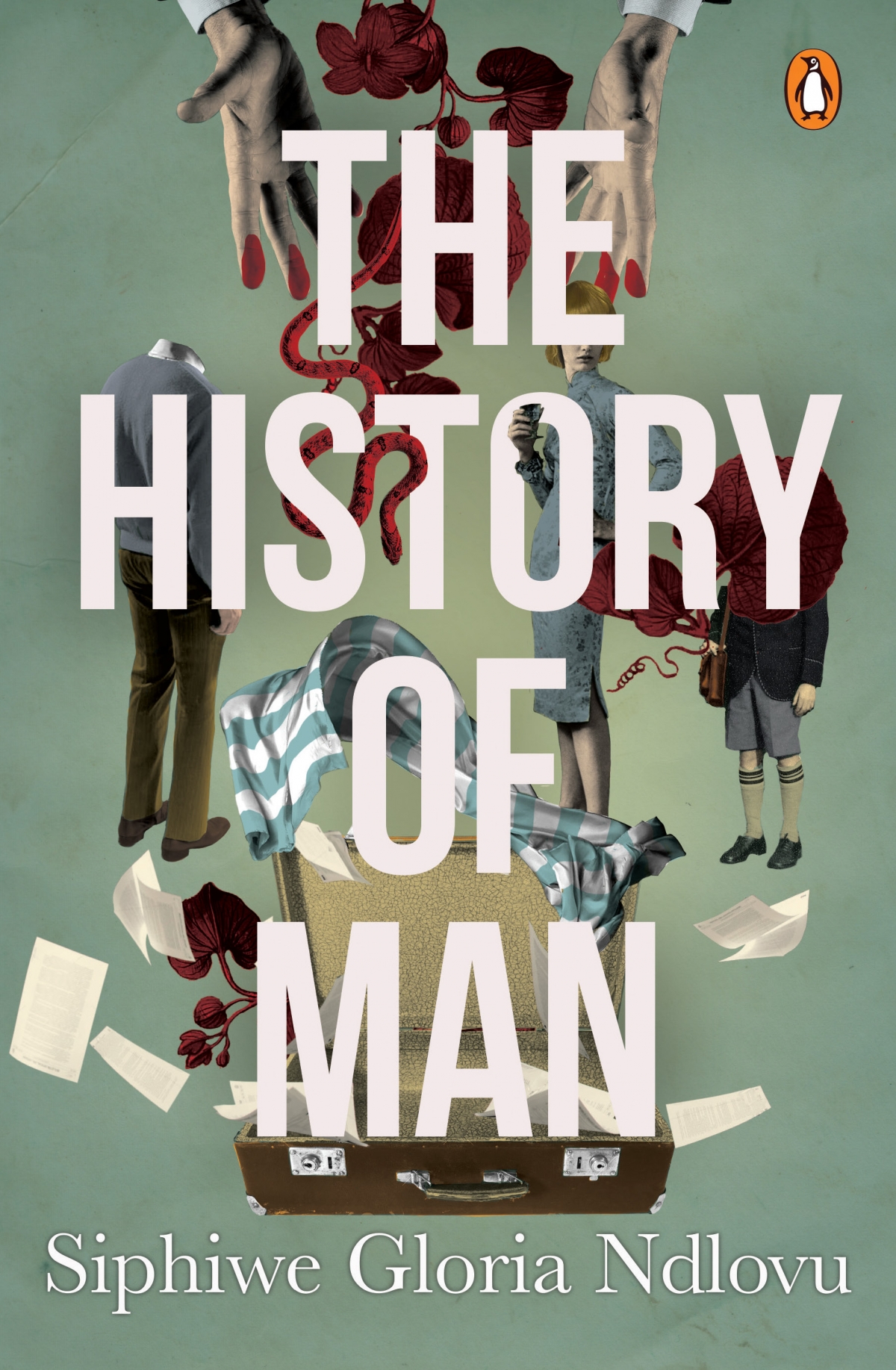
The Ashtonburys proved instrumental to the realisation of Emil’s dream. They knew and introduced him to all the right people and, now that he was connected to the Ashtonburys, all the right people were open to his idea. Nevertheless, even with the help of the Ashtonburys, it eventually became apparent to Emil that if anything was actually to be done, he had to become as respectable as all the right people. There was only one way that he, Emil Coetzee, confirmed bachelor, born in Durban, and a man without property, could become respectable enough for the City of Kings. He had to find himself a wife.
Soon enough, the wife Emil needed to find came along in the form of eighteen-year-old Kuki Sedgwick. She walked into Emil’s life at just the right moment to fulfil his desire. This was to be the only time that Kuki, bless her heart, would so wholly fulfil Emil’s desire, but neither of them knew this as they hastened through their courtship, both of them eager, for very different reasons, to be married, which they were within a year of Kuki’s walking into Emil’s life.
Emil had vaguely been aware of Kuki Sedgwick for the past few years. She was a plain sort of girl who was a little too tall and apologetically compensated for this by slumping her shoulders. For a while she had also been a little ‘on the plump side’ and at parties never put anything in her mouth without glancing at her mother first. She was something of a permanent fixture at gatherings and stood in corners drinking Shirley Temples and wearing dresses that did not seem to know quite what to do with her body. In spite of this, for all her awkwardness, Kuki was surprisingly popular with the young men – she was, after all, a Sedgwick. Not only was her family wealthy, but they also had running through their veins the blood of proud pioneer stock. So although Kuki was no great beauty, she was what the boys of her youth called a ‘catch’. Luckily for her, Kuki also had something else that made her very attractive: a strong desire to please. She laughed at every joke the young men made and when she laughed so easily, the young men imagined that she would make an uncomplicated and pleasant wife.
Fortuitously, towards the end of Kuki’s seventeenth year, her fortunes began to change. She lost her weight, and the bloom that had so far proved elusive finally blossomed. So much so that a few days after her eighteenth birthday, when she made her grand entrance at a party she knew Emil Coetzee would be attending, she had the satisfaction of turning every head in the room, including his. Later she would say to her friends, ‘Remember the expression on Montgomery Clift’s face when he first sees Elizabeth Taylor in A Place in the Sun? That is how Emil Coetzee looked at me that evening.’ Kuki did not care that most of her friends had been terrified by A Place in the Sun and saw the film as a cautionary tale. She had been too mesmerised by Montgomery Clift’s good looks to take heed of any lesson that the film might have offered. All she cared about in the telling of the story of how Emil had looked at her was that her friends understood that Emil, with his movie-star good looks, had looked at her as though they were part of something that had been produced in a dream factory.
As the evening of their first meeting progressed, it became clear to Emil that she wanted to rouse his attention and so he let her succeed in doing so. When he called the Sedgwicks a few days later, he spoke to a Kuki who had been enchanted by the time they had spent together and was eager to embark on a relationship with him.
Kuki was ten years his junior, so their courtship was not of the sort Emil was accustomed to. It was quaintly chaste. There was much handholding and quick pecking on the cheek, all meant to sow the seeds of a desire that would magically erupt into blissful compatibility on their wedding night. Added to all this, Kuki had a very definite idea of the type of romance that they should have and did not need his input at all. Emil did not begrudge her the running of their relationship; in fact, he was amused by it. It was, after all, her first romantic affair and she had probably been dreaming of it since childhood.
And, besides, he had Maryvonne.
Kuki had their entire relationship so well planned that during its fifth month she started to drop not-too-subtle hints about marriage: so-and-so she knew from school had just got engaged; a boy who had had quite a ‘pash’ for her had just got married; a distant cousin had eloped. Kuki also hinted, more than once, that the fact that they were born exactly ten years apart, 18 April 1927 and 18 April 1937 respectively, meant that they had been predestined to be together … forever. So when Emil proposed to her on their six-month anniversary, which Kuki felt needed to be celebrated, what surprised Kuki the most was not the proposal but the size of the diamonds. From the way her mouth opened into an ‘O’ that would not close for a very long time, it was obvious that she had been expecting something more modest. Emil was surprised that there were diamonds on the ring at all – it had taken three pay cheques and the sale of a few hunting rifles to be able to purchase it at T Forbes & Sons.
After Emil proposed, it soon became evident to him that all he had to do for the wedding was to show up wearing a tailored tuxedo. Kuki and her mother, Dorothea, had everything else well in hand. The date was set, the venue chosen, the guest list meticulously determined, the seating chart designed with discriminate care, the best caterer in the City of Kings booked and the five-star, seven-course menu decided.
The year before, 1954, Kuki’s heroine, Audrey Hepburn, had married Mel Ferrer (Kuki used the age difference in this union to justify to her family and friends why it was fine for her to marry Emil), which gave Kuki a wealth of ideas for her own wedding. All she had to do was find people in the City of Kings to emulate what she had gleaned of the wedding from fashion magazines and that would make her the happiest bride in the world. Since Kuki’s wedding was to be the City of Kings’ wedding of 1955, in order to prepare for it, Kuki spent less and less time with her betrothed and did not seem to mind the separation. As did Emil.
The only wrinkle that presented itself during the wedding preparations came in the form of the groomsmen. All Emil had to offer were what Kuki and her mother considered ‘old men’: Lord Ashtonbury, Courteney and Rutherford. All Kuki’s bridesmaids were, of necessity, young women. It was the bride’s duty to put her bridesmaids in the way of finding husbands, preferably in the groomsmen. Emil’s groomsmen were not only old, but they were all also already married. The Sedgwicks decided that it would be best to have six young men from their set stand behind Emil at the altar. The compromise was that Lord Ashtonbury could stand as best man.
With much fanfare in the City of Kings, the wedding day finally arrived.
The bride was radiant. Many hours had definitely gone into making her so, but she was a magnificent sight to behold.
As Emil watched Kuki walk down the aisle with her father by her side, something caught in his throat. This young woman was to be the making of him and for that he would always be beholden to her.
It was a wonderful occasion: the bride was resplendent, the groom was dashing and the guests were awed. Everything was as it should be. The only thing that raised a collective critical eyebrow was that Lady Ashtonbury was conspicuous by her absence.
The honeymoon was to take place at the Victoria and Alfred Hotel in Cape Town, but could only begin after a lengthy first-class train ride from the City of Kings. Along the way there was much hand-holding, talking to other passengers in the dining car, showing off the rings and, when they were alone, doing some proper kissing, but not so much as to rouse the passions. It would not do to consummate their marriage in a train suite, no matter how first-class, deluxe and accommodating it might be. Kuki was very happy with this state of affairs, Emil less so.
When they arrived at the Victoria and Alfred Hotel, the newly-weds found a telegram from Dorothea informing them that Kuki had been chosen as The Chronicle’s Bride of the Week. Upon hearing this news Kuki was so elated that as soon as they entered the honeymoon suite, steps were taken towards consummation.
At some point, however, things started to go awry. Kuki seemed to understand the need for what they were doing well enough but did not seem to understand that she was supposed to enjoy it. She pushed Emil away at a most inopportune moment, rushed to the bathroom and locked the door behind her.
She was only willing to do this the way God had intended, she informed him through the bathroom door, her voice teary but assertive.
The way God had intended?
Yes! With her eyes looking up to heaven.
Oh …
And … and … her lips would only kiss his lips. And … and … his lips would only kiss her lips.
The way God had intended?
Yes! She understood that he had a … history … but she, as his wife, expected to be respected throughout the entire process.
Kuki only left the bathroom after Emil had promised that he would respect her body, wishes and desires.
Kuki was very happy with this state of affairs, Emil less so.

_________________________________________________________________________________________________
About the author
Siphiwe Gloria Ndlovu is a writer, filmmaker and academic who holds a PhD from Stanford University, as well as master’s degrees in African Studies and Film. She has published research on Saartjie Baartman and she wrote, directed and edited the award-winning short film Graffiti. Born in Zimbabwe, she currently lives and works in Johannesburg. The History of Man is her second novel.
_________________________________________________________________________________________________








